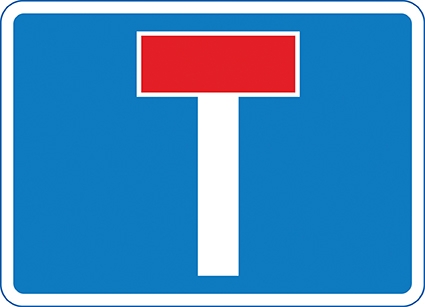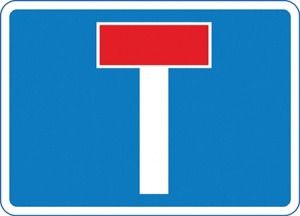Road Barriers
The scandal about the alleged cyanide poisoning of the Catholicos-Patriarch of All Georgia Ilia II has interferened with everything. Every media outlet begins and ends its stories with the events taking place in the patriarchate. However, there are other issues of no less importance taking place at the same time, for example the one about opening new corridors at the borders of our occupied territories, which not only radically changes the existing political agenda in Georgia, but at the same time, turns the political status quo of the South Caucasus completely upside down.
In the lobby of the Hotel Diplomat in Prague, the Russian Deputy Foreign Minister Gregory Karasin and Georgian Prime Minister's Special Representative for Relations with Russia, Zurab Abashidze, announced that very soon, with the help of Swiss customs officers, the two countries would begin implementing the agreement of 2011. For more clarification, Karasin explained to journalists exactly what he had discussed with his Georgian colleague.
''We are talking about opening three new corridors and modernizing the roads leading to Upper Larsi, in order to make it easier to handle more trucks and passenger vehicles crossing the borders. The first transportational corridor begins near Sochi, passes through Abkhazia and ends in the city of Zugdidi; the second begins on the territory of North Ossetia, near the village Nari, and passes through Tskhinvali region to end in Gori; the third runs alongside the Kazbegi-Zemo Larsi control checkpoint."
The mentioned agreement is the one that was signed when Russia became a member of the WTO six years ago and the document concerns cargo, customs administration and monitoring. To put it simply, Russia and Georgia agreed to create customs corridors that would pass through the occupied territories, and would be controlled at the beginning and the end of the roads. With this document, the West was able to please both sides. At the time, South Ossetia and Abkhazia were mentioned in the document as territories and not as independant states recognized by Russia, and the opening of customs points was said to be opened not only at the borders of Russia and Georgia, but also near to what is today considered to be the occupational border. Exactly this play of words was considered by Moscow and Tbilisi as a victory at the time. However, today, when the sides began discussing the document, it is quite obvious who wins and who loses with this agreement.
A week following the meeting held in Prague, for some reason, Russia returned to the announcement made by Karasin and in a very strange manner: The official representative of the Ministry of Foreign Affairs of Russia, Maria Zakharova, declared on February 14 that Russia finds 'The position of Tskhinvali absolutely legitimate regarding the perspectives of transit movement of cargo through the territory of South Ossetia and that this can be done only through an agreement made between Tbilisi and Tskhinvali.' It is clear that holding any kind of discussion between Tbilisi and Tskhinvali is impossible and especially on issues regarding customs and the border. So what was Karasin's announcement all about? Especially when only a week later his Ministry offers a completely different position on the issue.
Last year the Kremlin began mergering the customs points of Russia with that of the so-called South Ossetia, and this had to be a prerequisite for solving the problem of Tskhinvali by leaving it out of the scheme, but as we can see from Ms Zakharova's statement, obviously this is not the case.
Armenia was the country worst affected by this whole diplomatic adventure, as it is still left hoping for good weather in Dariali - the only active Russian-Georgian customs checkpoint. Official Yerevan is also hoping for the Avaro-Kakhetian highway, which will not pass through the occupied territories of the Tskhinvali region and Abkhazia. The Russian section of the route was finished a few years ago. However, opening it is also connected with political issues, mainly with that of the non-existence of the Russian-Georgian diplomatic relations.
Zaza Jgarkava












